Most insecure states in Nigeria: Nigeria has seen a rise in terrorism, abduction, armed robberies, cybercrime, and intercommunal violence in recent years. The Nigerian government has put in place a number of policies to fight crime and enhance security in the nation, including stepping up police presence, funding security infrastructure, and working with foreign partners.
But crime is still a big problem in Nigeria, so it’s critical that people take the appropriate safety precautions and are alert in order to protect themselves from criminal activity. Insurgency, banditry, intercommunal conflicts, and other violent crimes have generally impacted several states and regions of Nigeria, which has resulted in a decline in security in these places. It is advisable to stay away from these locations and use caution whenever there is a high risk. These are Nigeria’s most unstable states.
Recommended: Countries with the lowest access rate to electricity
Top 8 Most Insecure And Dangerous States in Nigeria
1. Borno State: Borno State has been facing serious and ongoing security issues, mostly as a result of the actions of insurgent organisations, chief among them Boko Haram. Borno’s security problems have profound historical, socioeconomic, and political foundations. An atmosphere of unhappiness and susceptibility has been cultivated by decades of underdevelopment, political marginalisation, and economic inequality, providing a favourable setting for radicalization. The security environment is complicated due to the complex interactions between economic, religious, and ethnic forces.
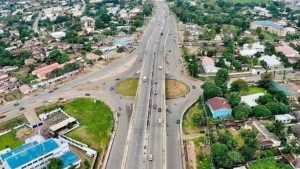
The situation has been made worse by Borno’s porous borders, which allow rebels to roam freely and serve as a hub for violent crimes, kidnappings, and large-scale displacements. To address the underlying reasons and lay the groundwork for long-lasting peace, persistent efforts in socioeconomic development, education, and community participation are essential, in addition to urgent security measures.
2. Yobe State: Borno’s neighbour Yobe State faces similar security threats from the Boko Haram conflict. There is an air of increased insecurity in the state due to attacks on schools, kidnappings, and resident relocation. Yobe’s socioeconomic environment, which is characterised by extreme poverty, inadequate infrastructure, and economic vulnerability, makes some populations more vulnerable to the exploitation of rebel organisations. The region’s porous borders exacerbate security risks, necessitating persistent efforts to strengthen security protocols while also addressing the underlying socioeconomic issues.
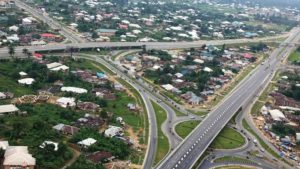
A holistic approach to Yobe has to include programmes that provide access to economic opportunities, raise educational standards, and strengthen community resilience. A more comprehensive and successful strategy may be implemented by tackling the underlying socio-economic issues as well as the current security threats.
Also see: Most Expensive Secondary Schools In Nigeria
3. Adamawa State: Adamawa State is dealing not just with the Boko Haram insurgency’s aftereffects but also with isolated intercommunal disputes. Although a source of richness, the state’s unique ethnic and religious makeup has occasionally led to conflict and infrequent outbursts of violence. Socioeconomic variables that add to the complexity of the security environment include poverty and restricted access to education.
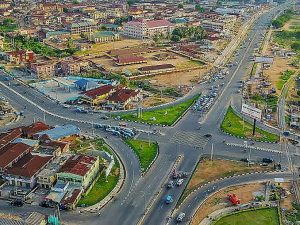
Beyond drastic security measures, addressing instability in Adamawa necessitates a complex and context-specific strategy. It is crucial to implement focused interventions to resolve past wrongs, foster social cohesiveness, and offer opportunities for economic development. Long-lasting peace may be fostered by supporting community-led initiatives and participating in sustainable socio-economic development.
4. Kaduna State: Kaduna State is confronted with a multitude of security concerns, including as banditry, ethno-religious conflicts, and intercommunal violence. The state is vulnerable to a range of violent acts due to its strategic significance and heterogeneous populace. The battle for resources, historical conflicts between religious and ethnic groups, and economic inequality all add to the complexity of the security environment.
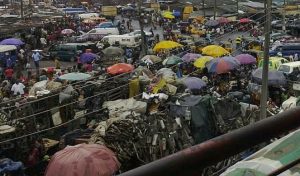
The instability in Kaduna may be effectively addressed by enhancing security measures, maintaining communication between communities, implementing programmes to lessen economic gaps, and encouraging inclusion. A more thorough and long-lasting peace may be reached by addressing both the current security issues and the underlying socioeconomic causes.
Also see: Exceptions to the Rule in Rylands v Fletcher
5. Zamfara State: Security concerns in Zamfara State have mostly to do with banditry and attacks on civilian targets. The state has several difficulties, including economic hardships, ineffective law enforcement, and conflicts over resources and territory. Zamfara has had high-profile cases of mass kidnappings, especially involving children, which emphasises how urgent it is to solve security issues.
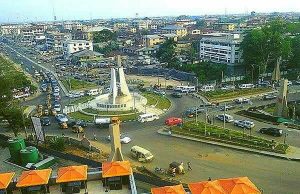
Zamfara is tackling instability through increased security, community involvement, economic recovery, and programmes aimed at resolving underlying issues that lead to conflicts. Zamfara can contribute to a more stable and secure future by promoting community resilience, establishing pathways for socioeconomic growth, and putting in place targeted security measures.
6. Katsina State: Nigeria’s Katsina State, which is located in the northwest, has had to deal with a variety of security issues, most notably attacks on villages and banditry. With shared borders with Zamfara, another state facing comparable challenges, Katsina’s security environment is dynamic and multifaceted. The combination of past grievances, economic inequality, and lapses in law enforcement has created a climate that is favourable to banditry. The state has seen disturbing cases of mass kidnappings, which have a particular impact on schools and highlight how urgent security issues are.
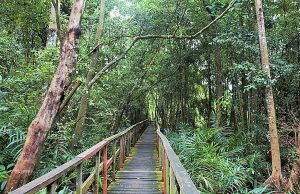
To address the instability in Katsina, enhanced security measures that include community policing and intelligence-driven operations are essential. Moreover, cultivating resilience and community involvement is essential. Initiatives for economic development that tackle the underlying causes of conflict and create chances for sustainability are equally important.
Also see: A Day in the Life of a Lawyer
7. Sokoto State: The well-known security issues in Sokoto are caused by intercommunal strife and banditry. The state’s security problems are further complicated by its closeness to border areas. The complex security environment is influenced by economic concerns, including few resources and competition for available possibilities. In addition, historical and cultural factors influence how communities view security concerns and react to them. Sokoto’s insecurity must be addressed with a customised, situation-specific strategy.
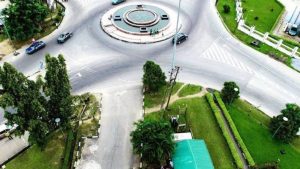
Initiatives for border control and intelligence-driven operations are examples of urgent security measures that should be included in strategies. Initiatives for socioeconomic development are essential to addressing the economic causes of insecurity at the same time. To guarantee that interventions are successful and well-received by the communities in which they are implemented, cultural sensitivities and historical backgrounds should be taken into account.
8. Plateau State: Conflicts between farmers and herders as well as ethno-religious disputes are commonplace in Plateau State. The population of the state is varied, and rivalry for resources—especially land—has played a role. Violence frequently breaks out between groups due to historical conflicts, which impact both urban and rural regions. A comprehensive and multidimensional approach is necessary due to the intricacy of insecurity in the Plateau.
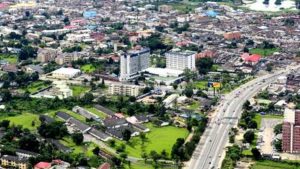
Increasing law enforcement agencies’ ability to react quickly to new threats and keeping a visible presence in high-risk locations are two ways to improve security generally. Initiatives by the community that support cooperation, tolerance, and understanding are crucial to establishing long-term peace in this state. The Plateau State stands to gain from persistent endeavours that surpass transitory security protocols and adopt a comprehensive strategy for stability and advancement.
Recommended: Differences Between Hardwares and Softwares (With Examples)
Conclusion
It’s also critical to remember that crime rates might change based on the area and time of day. For example, certain parts of Nigeria, notably the cities, are more likely to experience crime than others; it is thus advisable to stay away from these regions, especially after dark. People may lessen their chance of becoming victims of crime by remaining aware and adhering to security advice.

Edeh Samuel Chukwuemeka, ACMC, is a lawyer and a certified mediator/conciliator in Nigeria. He is also a developer with knowledge in various programming languages. Samuel is determined to leverage his skills in technology, SEO, and legal practice to revolutionize the legal profession worldwide by creating web and mobile applications that simplify legal research. Sam is also passionate about educating and providing valuable information to people.